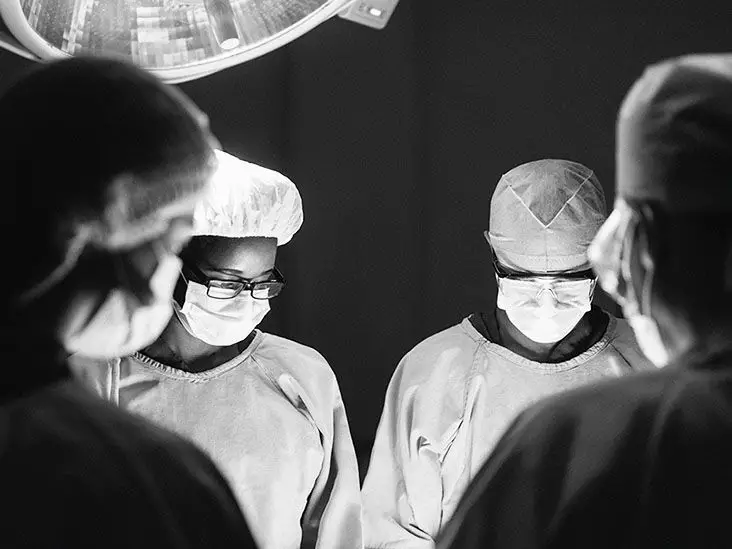Thyroid cancer is not just a medical condition; it represents a complex journey characterized by uncertainty, determination, and hope. When cells within the thyroid gland undergo DNA mutations, they can grow uncontrollably, leading to the formation of tumors. The thyroid, a butterfly-shaped gland located at the base of the neck, is crucial as it produces hormones that regulate metabolism, growth, and body temperature. There are various forms of thyroid cancer, ranging from slow-growing types that are highly treatable to rare, aggressive forms that can significantly impact a person’s life. Understanding the intricacies of this disease is vital, as it sets the stage for treatment decisions that can ultimately shape one’s path to recovery.
The American Cancer Society estimates that approximately 45,000 new cases of thyroid cancer are diagnosed each year in the United States alone. Early diagnosis is key to effective treatment, and as awareness of thyroid cancer increases, so does the importance of recognizing symptoms and risk factors such as radiation exposure and hereditary conditions. For many, the journey begins with a simple neck examination, leading to blood tests and imaging techniques that can illuminate the presence of a potential malignancy.
The Role and Procedure of Thyroid Surgery
Thyroid surgery, often referred to as thyroidectomy, serves as the mainstay treatment for thyroid cancer. Surgical intervention typically involves the removal of either a part or the entire thyroid gland, and the decision is largely influenced by the type and staging of cancer. This critical procedure is not just a means to eliminate cancer; it also entails an intricate balance of preserving the gland’s remaining function and ensuring that the patient’s quality of life is upheld.
Surgeons make an incision in the neck, usually in a crease to reduce visible scarring, and this process is performed under general anesthesia to safeguard the patient’s comfort. Depending on the extent of cancer, the procedure may involve a lobectomy (removal of half the thyroid) or a total thyroidectomy (complete gland removal). Skilled surgeons are acutely aware of vital structures nearby, such as the recurrent laryngeal nerve and the parathyroid glands, which regulate calcium levels in the blood. During surgery, efforts are made to protect these structures, often utilizing advanced techniques such as nerve monitoring to maintain vocal cord function post-op.
The Road to Recovery: Navigating Post-Surgery Life
The recovery process following thyroid surgery is another crucial chapter in the patient’s journey. The first week primarily focuses on rest and pain management, essential for healing. Patients also receive comprehensive instructions about medication adjustments and activity limitations. Generally, while some individual cases permit a same-day discharge following partial thyroidectomy, an overnight stay in the hospital is common due to monitoring needs.
As the weeks progress, patients gradually transition back to their routine. By the second and third weeks, light daily activities can be resumed, but caution is advised to avoid any heavy lifting. Full activity may be attainable within a month and a half post-surgery, including the resumption of exercise. The visibility of the incision often diminishes over time, a comfort for many as they regain a sense of normalcy.
Long-Term Considerations and Lifelong Management
However, the journey doesn’t end with surgery. For those who have undergone a total thyroidectomy, lifelong thyroid hormone replacement therapy becomes necessary. The intricacies of managing thyroid hormone levels require regular monitoring through blood tests, ensuring that the right dosage is achieved based on individual factors like weight and age. Many patients find that understanding this new regimen becomes part of their daily life, providing a foundation for a healthy existence.
Notably, patients must also remain vigilant for potential effects such as calcium imbalances or voice changes. Although most voice-related issues resolve within a few weeks, a small percentage may experience permanent changes; thus, ongoing support and communication with a healthcare team remain invaluable.
In the grand scheme of thyroid cancer treatment, surgery isn’t merely a medical procedure—it’s a life-altering experience. While the risks associated with surgery may evoke concern, the procedure also offers patients a fighting chance against thyroid cancer, marking a critical step in their recovery. Engaging in open dialogues with healthcare professionals empowers individuals to make informed decisions, ensuring that each patient’s preferences and well-being take precedence in their treatment journey.

